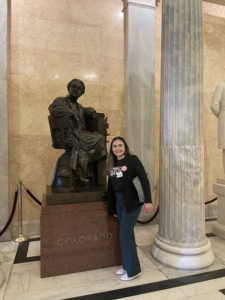Facts about Human Trafficking in commemoration of World Day Against Human Trafficking, July 30, 2023

- There were an estimated 27.6 million victims of human trafficking worldwide at any given time in 2021 (U.S. Department of State)
- In 2021, 17.3 million were exploited in the private sector, 6.3 million in forced commercial sexual exploitation, and 3.9 million in forced labor imposed by states (International Labour Organization)
- In 2021, there were an estimated 50 million people in “modern slavery” conditions, which includes both forced labor—28 million– and forced marriage—28 million. (ILO News).
- In 2021, there were an estimated 3.3 million children being exploited by forced labor globally on any given day. This accounted for around 12% of all estimated forced labor (ILO)
- Of the 3.3 million, 1.7 million children are trapped in forced commercial sexual exploitation. (ILO)
- Migrants are being exploited significantly higher levels in forced labor. Out of every 1000 migrant workers, 14 are believed to be in forced labor conditions. (ILO)
- More than half of all forced labor occurs in either upper-middle income or high-income countries (ILO)
- In the U.S. in 2020, 658 persons were convicted of a federal human trafficking offense. The majority of federal human trafficking prosecutions in the U.S. involve sex trafficking, despite forced labor being the most prominent form of human trafficking worldwide. (U.S. State Dept. TIPS)
- In the United States, around 70% of human trafficking victims are immigrants (Human Trafficking Institute)
- In the United States, there is no vacating of criminal records for victims of human trafficking at the federal level. Out of 467 victims of trafficking surveyed, 62 percent stated they had been cited, arrested, or detained by law enforcement at least once. Among those, 71 percent had or have a criminal record as a result. 90% of those convictions were crimes directly related to their trafficking. (U.S. State Dept. TIPS)
- As of 2023, only 17 states have laws that prohibit the prosecution of child sex trafficking victims for unlawful acts committed as a direct result of being trafficked. (U.S. State Dept. TIPS)
(Compiled 7/25/2023, by CLC researcher Forrest Hitchcock)
Sources:
ILO:https://www.ilo.org/wcmsp5/groups/public/—ed_norm/—ipec/documents/publication/wcms_854733.pdf
U.S. State Dept.: https://www.state.gov/humantrafficking-about-human-trafficking/ ,
U.S. State Dept. TIPS: https://www.state.gov/reports/2023-trafficking-in-persons-report/
Definitions from ILO: https://www.ilo.org/global/topics/forced-labour/definition/lang–en/index.htm



